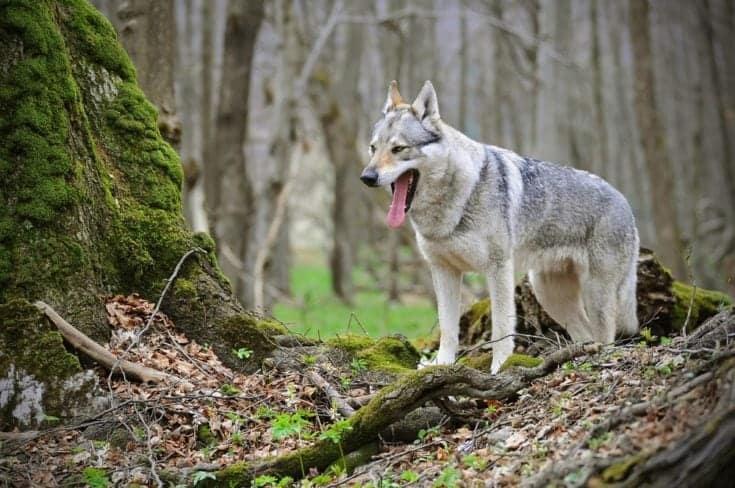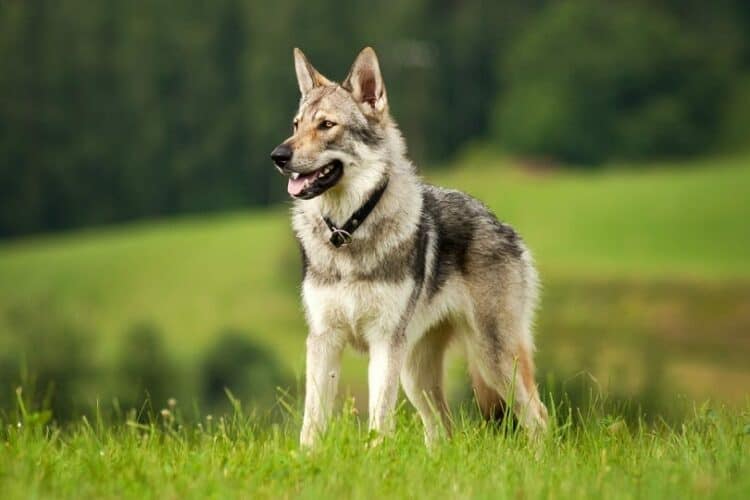Wolves are fascinating animals with a hierarchical pack community and unique social structure. These wild dogs hunt cooperatively and have the ability to track and take down large prey like moose or buffalo. Much of domestic dog behavior is attributable to the instincts of wolves, and wolfdog hybrids have developed out of our sense of fascination with these animals.
However, wolves and wolf hybrids are far too dangerous to treat as pets. These animals are wild and unpredictable and can never be completely trusted around people or other animals.
The U.S. Centers for Disease Control reports that wolf dogs were responsible for 7% of dog bite deaths between 1979 and 1996 despite making up a very small proportion of the dog population. In 2021, hybrid wolf dogs were responsible for 85 attacks and 26 deaths. While there are fewer attacks from wolf dogs than some other dog breeds, it’s important to consider that these numbers are from dogs that make up only 0.3% of the U.S. dog population. For comparison’s sake, Siberian Huskies were involved in 83 attacks and 26 deaths, but they are the 14th most popular dog breed in the United States. Essentially, this means that the percentage of attacks is much lower than that of wolf dogs.
Despite 40 states banning the ownership of wolf dogs, there are an estimated 100,000 of them in the United States. With a growing public interest in owning these dogs, it’s important to understand the type of animal they are.
Wolf Dogs Compared to Dogs and Wolves
| Domestic Dog | Wolf | Wolf-Dog Hybrid | |
| General Characteristics | · Highly socialized with humans
· Less persistent than wolves · Less destructive · Requires moderate exercise |
· Not socialized with humans
· Highly dependant on the pack · Chews everything · Would destroy your house to escape · Highly active |
· Unpredictable around humans and pets
· Has needs of a wolf · Requires extensive exercise · Often can’t be trained |
| Bite Force | Varies — A German Shepherd is on the high end and has a bite force of 238 PSI. | 1,200 PSI – A wolf has the ability to crush bones but enough control to safely carry pups. | Varies – A wolf dog often has a bite force closer to that of a wolf than a dog, estimated to be about 406 PSI. |
| 3 to 5 weeks old | · Follows people
· Watches people’s faces · Familiar with humans |
· Attached to pack mates
· Aggressive · Fearful of humans · No attachment to humans, even in captivity |
· Unpredictable, as some are dog like and some are wolf like
· Difficult to train · Impossible to keep indoors |
| 6 months old | · Can be trained not to bite or chew | · Aggressive
· Drive for dominance · Show interest in small or weak animals |
· High prey drive
· Chew everything · Can’t be fully trusted |
| 2 years old | · Should be fairly obedient
· Strong attachments to humans |
· Mature to be aggressive, particularly males | · Aggressive behaviors
· Dominance seeking · Not trainable like dogs |
| Desirability as a Pet | Yes, they can make excellent companions. | No, they need other wolves and room to roam | No, high numbers are abandoned or euthanized, and they have high liability issues. |
| Legal Ownership | Yes | No, it is illegal to own a wolf in the U.S. | It depends on the location, as they are illegal in 40 states. |

Do Wolf Dogs Make Good Pets?
The reality of hybrid dogs is that owning one is a dice roll: You may get a dog that’s wolf like, or you may get one with more domestic characteristics. However, too many potential wolfdog hybrid owners often overlook the fact that their “pet” has an overwhelming number of wild traits that are unmanageable in most domestic situations.
Any animal that is kept in conditions that don’t adequately meet their needs (physically or mentally) is a risk to humans. An inability to meet these needs often ends up with the animal suffering or being kept in a cage or chained up. This is not a good quality of life.
Owning a wolf dog is a monumental responsibility, and most people are unable to properly provide the environment and stimulation that these animals need. This is not the animal’s fault, but it is the owner’s responsibility to avoid taking on an animal that they can’t care for.
Wrapping Up
While wolf dogs are fascinating animals, they can be unpredictable and dangerous. They have different needs than other domestic dogs and wild instincts from their wolf parent. While there are some owners who can provide proper care for their wolf dogs, they are not appropriate pets for most people.
Featured Image Credit: gloverk, Shutterstock














